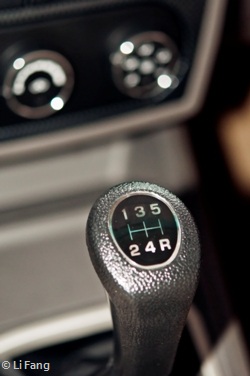Drive Smarter
We all like to think we're good drivers. But are you smart as well?
By making some simple changes to the way you drive, you could take control, reduce the fuel you use and also save money.
This is called Smarter Driving.
Smarter driving involves using your gears, acceleration and powers of anticipation to adopt a more fuel-efficient driving style. As well as reducing your fuel consumption, it's safer too.
The benefits of smarter driving mean you can reduce your annual fuel bills, cut your carbon emissions, reduce wear and tear on the vehicle and enjoy safer, less stressful journeys.
- Drive Off From Cold. Modern cars are designed to move straight away. Warming up the engine just wastes fuel - and actually causes engine wear.
- Check Your Revs. Change up before 2,500rpm (petrol) or 2,000rpm (diesel).
- Drive Smoothly. Anticipate road conditions so that you drive smoothly and avoid sharp acceleration and heavy braking. This saves fuel and reduces accident rates.
- Step Off The Accelerator. When slowing down or driving downhill, remain in gear but take your foot off the accelerator early. This reduces fuel flow to the engine to virtually zero.
- Slow Down. Driving within the speed limit is safer as well as being the law, and reduces fuel consumption.
- When stuck in traffic: Switch It Off. Modern cars use virtually no extra fuel when they are re-started without pressing the accelerator. Turn off the engine if you're going to be stationary for more than a minute or two.
- Plan Ahead. Plan your journeys to avoid congestion and road works, and to make sure you don't waste fuel or time getting lost!
- Keep It Long. Use other forms of transport for short journeys, if you can. A cold engine uses almost twice as much fuel and catalytic converters can take five miles to become effective.
- Reduce Drag. Accessories such as roof racks, bike carriers and roof boxes significantly affect your car's aerodynamics and reduce fuel efficiency, so remove them when not in use.
- Check Tyre Pressure. Under-inflated tyres are dangerous and increase fuel consumption

For more information on home energy generation technologies, contact your local Energy Saving Trust Advice Centre free on 0800 512 012, or visit www.energysavingtrust.org.uk.